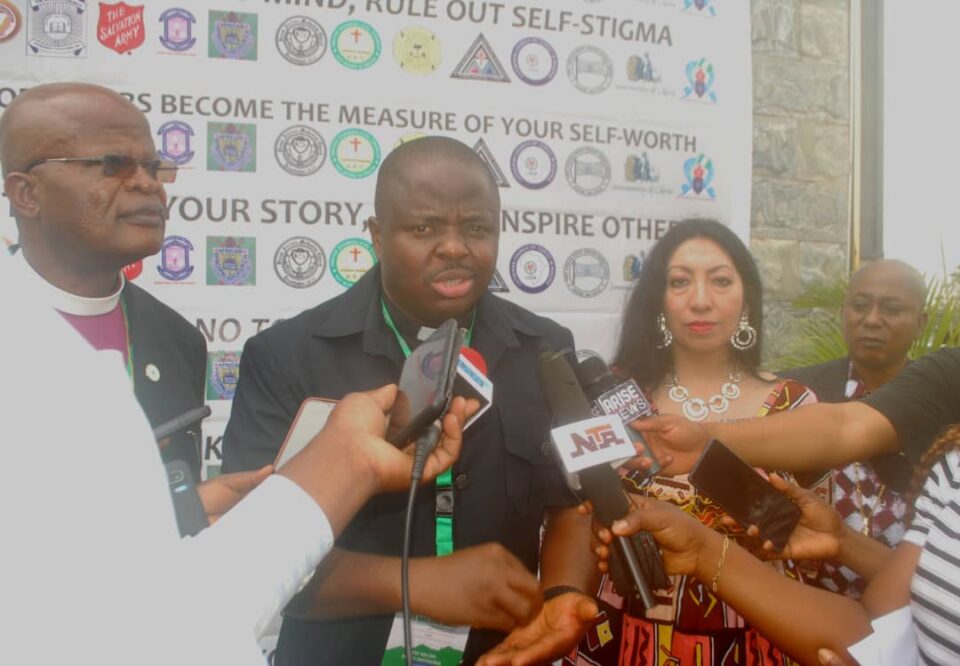A Christian advocacy group, Christian Council of Nigeria (CCN), has expressed dissatisfaction over increasing reports of discrimination lf people living with HIV/AIDS.
The faith group, thus advocated that safer spaces be created in places of worship, as well as work places and other opportunities, to enable these set of people function freely without fear of discrimination because of their HIV status.
To this end, the CCN in collaboration with the World Council of Churches (WCC), implemented a training-of-trainers to respond to the challenges of HIV among young people.
President of CCN, Most Rev. David Onuoha, told journalists at the end of the training in Abuja, on Thursday, that people are yet to realize that being HIV positive case is not a death sentence as being ignorantly perceived by some people.
He made reference to UNAIDS Country Fact Sheet of 2021 which noted that Nigeria has one of the largest HIV epidemic in the world
It also indicated that 1 900 000 adults and children are living with HIV in Nigeria, with young people most affected by HIV, particularly young women.
He said: “Being part of a large network of organizations and states that are making commitments for the wellbeing of adolescents and young people, we are taking the commitment to train young people and faith leaders on HIV prevention and response to HIV stigma.
“In addition to that, we will co-create strategies to respond to HIV self-stigma, and also integrate young people in the programing of our activities by including them in our Advisory Committees.”
He stated that stigma is still one of the remaining barriers limiting HIV response, and it’s mostly caused by lack of information on HIV pre-existing stigmas and inequalities.
“People living with HIV are seen as promiscuous and with weak morality which is not true.
“Unfortunately, stigma also happens in faith settings. For example, some faith leaders deny performing weddings for people living with HIV. Some families, tell people living with HIV that they brought shame to the family. These are destructive words and actions against these people.”
The Christian leader restated that HIV treatment is very effective if the patient can religiously abide by the prescriptions at provided by the doctors. “We have to know that anyone living with HIV who takes the medication and maintains an undetectable viral load can no longer transmit HIV. So, there’s no reason why some people keep stigmatizing.”
He appealed to religious leaders to make faith communities a place of healing for all people living with HIV, especially for young people. “Faith leaders should challenge HIV stigma by getting the latest information on HIV, educate faith communities and spread love and compassionate care.
“It’s our duty to extend compassionate love to the most vulnerable; it is our calling to make communities safer for young people and for all,” he said.
Meanwhile, a HIV positive patient who pleaded for identity protection said, “I don’t tell people I have HIV because I don’t want them to judge me. I was told that people living with HIV should not have children. Because I have HIV, I was sterilized.
“They kept me out of the kitchen and stopped talking to me because I have HIV. I know I got this through sex. I feel really ashamed having a sexual disease and I’m no longer interested in having sex. No one could really want to be with someone who has HIV.
“I know stigma as I know the back of my hand. From a young age, I watched everyone walk away from me because I was tested positive to HIV. From my friends at school to my very own father who sent me away to the village to my maternal grandmother, apparently, so I could die next to her and that is how I found out that my mother had died of HIV.
“According to my father, it was only a matter of time before I joined my mother. In his words, why waste money paying school fees for a corpse? Sadly, he was right. I indeed felt like a moving corpse.”



